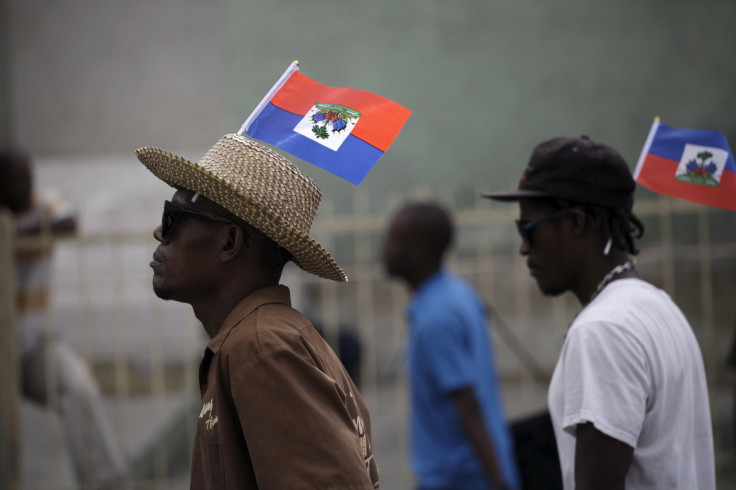Haiti Edges Toward Interim Government After Election Collapse

President Michel Martelly is determined to leave office on the first day of Haiti's carnival in two weeks even though he has no replacement, the prime minister said on Monday, making it likely an interim government will guide the country to elections.
Haiti was due to choose Martelly's replacement last Sunday, but the two-man race was postponed indefinitely after opposition candidate Jude Celestin refused to participate over alleged fraud that sparked protests and violence.
"It is clear that we won't have elections before the departure of President Michel Martelly scheduled for Feb. 7," Prime Minister Evans Paul said.
The United States' Haiti Special Coordinator Kenneth Merten said Washington wanted to see new elections quickly and opposed a long transitional period, but acknowledged Martelly was unlikely to place the presidential sash on his successor.
"Realistically speaking," Merten told Reuters, "We may be looking at some sort of temporary solution until there is a handover to a new elected president. Our fear is that we go into a situation that is open ended.
"In our analysis that is a dangerous place to go," Merten said.
Opposition parties want Martelly to leave on Feb. 7, as mandated by the constitution, although some in his party would like him to remain in office to oversee the elections until his five-year term ends in May.
"There are people who are for, and people who are against, but he is determined to leave," said Paul, a former opposition member who joined Martelly's government in 2014.
Martelly, a former pop-star known as Sweet Micky, had a dream to sing on a carnival float on the day he leaves office, Paul told Venezuelan TV station Telesur.
The government and opposition leaders are discussing what kind of interim administration will govern until a new president is elected. One option is that the prime minister take over.
Some in the opposition have called for an unelected transitional government to take Martelly's place for a longer period, harking back to a violent two-year period after a coup in 2004.
Haiti, the poorest country in the Western hemisphere, has been unable to build a stable democracy since the overthrow of the 1957-1986 dictatorship of the Duvalier family and ensuing coups and election fraud.
A few hundred people turned out for an opposition rally in the capital on Monday, sporadically clashing with police who used tear gas to disperse the crowd, after five days of larger, and sometimes violent, protests.
Large counter-protests erupted over the weekend in northern Haiti, a stronghold of Martelly's chosen candidate, Jovenel Moise. Protesters demanding quick elections have blocked highways with trucks and burning tires, and marched through northern cities.
The opposing protests and inflammatory comments by a former coup leader have raised fears the two sides could clash in the streets, although the talks have begun to cool the mood in Port-au-Prince.
"We are watching it very carefully, we are very concerned, we hope that dialogue between the candidates, the president and the president of the Senate and others can come to a solution," said Merten, U.S. ambassador to Haiti at the time of the 2010 earthquake and presidential election that brought Martelly to power.
Martelly entered office in May 2011, after the constitution's February deadline, because of a political logjam and delays due to the earthquake.
© Copyright IBTimes 2024. All rights reserved.





















